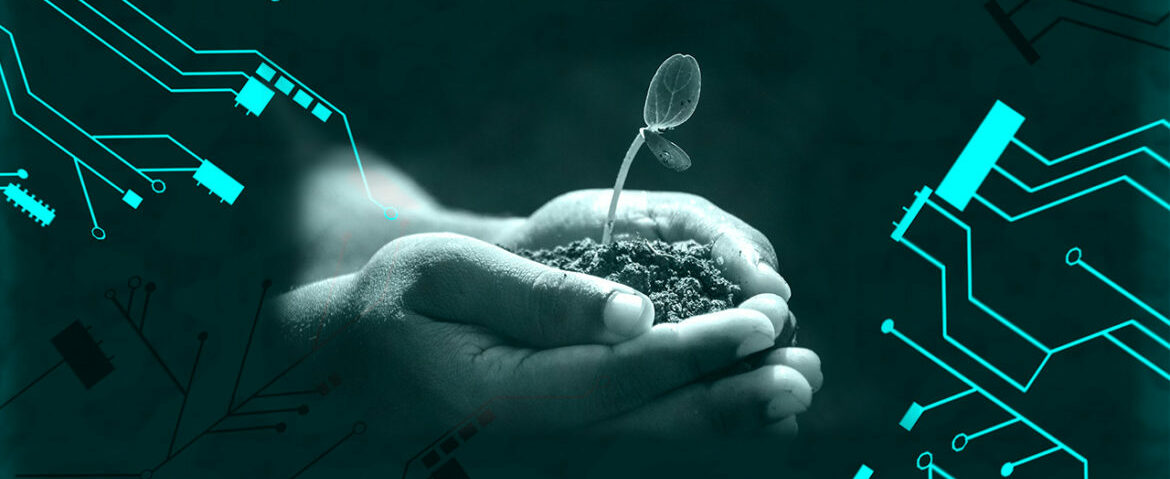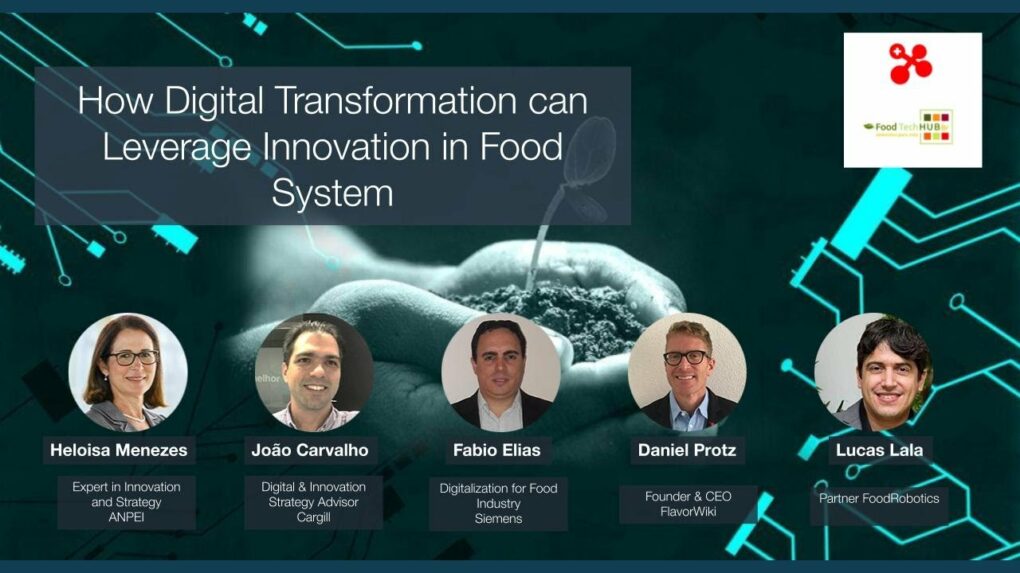
The world population is growing, demand for food is rising and thus the need to supply a higher amount of produce in a shorter amount of time. Simultaneously, concerns about the healthiness and the sustainability of our food combined with the competition in the industry contribute to the revolution of the food industry.
Food and beverage companies face multiple challenges, ranging from production to packaging. swissnex Brazil organised a webinar on the 26th of May to discuss these challenges.
Paulo Silveira, CEO of FoodTech Hub, underlines the difficulties in understanding the needs of the consumers and the market, as well as the complexity of developing new products, quickly responding to the changes in the market. The top performers in the market are those who have a holistic approach to technology, including people, culture and the infrastructure in and outside the organisation.
Heloisa Menezes notes that there is a high potential for Research and Development (R&D) to digitalise the agricultural market. The use of data is essential for understanding and the correct application of the technologies. Today, the application of digital tools is still low, and investments are needed in terms of digital education and infrastructure, to facilitate access to these technologies to farmers in Brazil.
Technology can foster the creation of new ways of doing business, and innovation says João Carvalho. For instance, the use of blockchain is useful to keep track of transportation; artificial intelligence can help monitor animal behaviour and detect diseases before they manifest.
The client will be at the centre; the quality of products, their sustainability and tracking will be improved. Using artificial intelligence allows for tracking goods from the field to the retailer, enabling direct communication with consumers. However, Fabio Elias observes that this adds complexity for the producers. The leading firms in the sector will be those who embrace complexity, rather than those who resist to it.
Daniel Prontz, the founder of Flavorwiki, uses taste to connect suppliers and consumers. Users enter information about products they consume in the application, creating their flavour pattern online. Firms then have access to this data, which allows them to develop better products and more adapted to the local market, as well as facilitating the understanding of the final consumers.
Augmented reality allows for a direct relationship between the consumer, the product, and the brand. Lucas Lalla gave the example of interactive packaging: using a QR code, consumers can visualise information about the product, recipe suggestions or health benefits, increasing interaction with the brand. Lucas is also developing a robot that produces drinks according to customers’ taste and can memorise recipes. He aims to introduce the technology in gyms, schools or shopping centres to bring healthy beverages directly to consumers.
Like in other technological fields, there is a discussion about data protection and to whom the data belongs and what can be done to protect the users’ rights and privacy. The food industry is still at an early stage of technological adoption. If we are in the era of Industry 4.0, the food sector is still 2.0, however with a lot of opportunities and potential to expand.
Watch the full webinar below:
-
![]()
Webinar:
How Digital Transformation can foster Innovation in the Food System
